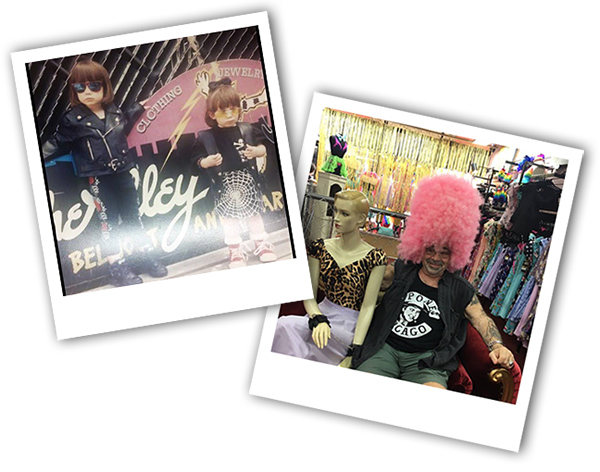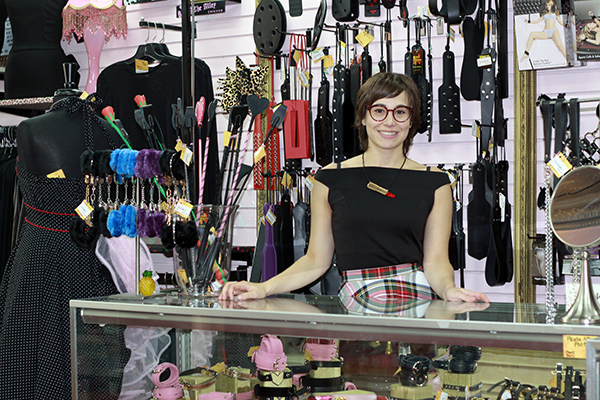When you tell people you run a sex shop with your parents, it totally weirds them out.
Last Thanksgiving, my mother and I discussed appetizer options while unpacking a box of dildos. On a regular basis, my father and I analyze sales data on BDSM items so we can better understand if the next month will be busier for floggers or paddles.
When my parents opened Taboo Tabou in the early 1990s, it was a small shop with a buzzy neon sign that said "Gallery of Condoms." Lake View was the center of the HIV epidemic in Chicago. The store offered every option for safe sex—condoms, dental dams, and female condoms—what they perceived the neighborhood needed at the time. Lake View was Chicago’s Haight-Ashbury, St. Marks Place, and Soho all wrapped into one package.
Then they went on vacation. While my parents lounged on the beach in Maui, Taboo Tabou's manager decided to make some purchasing decisions—expanding the merchandise selection into BDSM and fetish gear. When my parents came home, they walked into a store filled with blood-red ball gags, masks, and restraints. They freaked, but gave it a few weeks to settle in. That's when they realized the manager was correct, and this was the new angle Taboo Tabou needed to take to grow.
Twenty years later Taboo Tabou is still transforming. It's one of the reasons our store has been able to hold on in a neighborhood that is knocking down architecturally unique buildings for Targets and Jamba Juices. Small businesses reflect the needs of their neighborhoods through the perception of the staff—not like cookie-cutter shops that are spread identically across the nation. At Taboo Tabou, every employee affects the store's energy and mission. Our current team has helped transform the store from your typical sex shop to the ultimate "girl power" experience. We offer pin-up clothing in sizes extra small through 4XL, twice-monthly sexual education workshops, and Howard Brown Health provides free HIV testing once a month here.
The neighborhood's independent shops offer a unique shopping experience, from the surfboards at Windward 82 to the leather chaps at the Men's Room. Belmont Army turned into a shoppers' paradise by offering army gear, Nikes, and skateboards in one building. Hollywood Mirror brought out the arty and weird side of Lake View. Strange Cargo outfitted just about everyone in the 60657 zip code.

Sometimes it can feel like corporate stores are impossible to compete with, since they are run by millionaires willing to lose money for as long as it takes to be the last one standing. We've trained our consumer to believe that they can get the best price online or at a store like H&M instead of teaching people to value a neighborhood's little shops, in-person advice, and items that are well made.
When you ask someone why they visit Chicago or live here, they almost always say it's for the neighborhoods; it's family-run businesses that create that neighborhood feeling. Customers should know that when they walk into a local book shop, read through a book, ask a staff member advice, and then buy it on Amazon to save two or three dollars, that is destroying the elements of what makes Chicago beautiful.
Lake View is always in transition. My parents announced at the end of 2015 that Taboo Tabou’s sister shop, the Alley, would close. This year, it will be reborn into a coffee shop with rock T-shirts and craft beers. When customers found out, they came spilling out from as far as Indiana and Wisconsin to show their support. People learned that it's important to take care of small businesses in your neighborhood or else they'll go away, and they are showing that every single day in the new Alley and Taboo Tabou. Gentrification might change the way a neighborhood looks, but in the end, it’s the neighbors who make Lake View the best neighborhood in Chicago.



